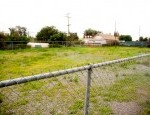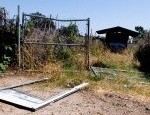A year ago, Ourn Lun, a grandmotherly 60-year-old, was evicted from a piece of city-owned land where she and a group of fellow Cambodian refugees had grown crops like bitter melon, red peppers and green beans in peaceful obscurity for nearly three decades.
The refugees, all of them poor, had been farming the land without legal permission. Since they were evicted they’ve hoped to return to the parcel, tucked away at the end of a southeastern San Diego cul-de-sac in Mountain View. But zoning restrictions made that expensive and difficult.
Three weeks ago, San Diego’s City Council passed rules that make it easier to start community gardens, clearing the way for the refugees to return.
But now they’re staring at a new problem. The city has told the farmers they can’t lease the land until it’s been cleared of all the dead crops, weeds and trash there — debris that accumulated because the farmers were forced to leave. One estimate has put the cleanup cost at $20,000, and it’s not clear who will pay it.
Related Coverage
 |
Community Gardens Can Now Be Planted Citywide
The City Council voted in June to lift zoning restrictions and expensive fees for community gardens. The move makes it easier for nonprofits and low-income residents to start planting citywide.
 |
Red Tape Turns a Green Farm Into an Eyesore
A group of Cambodian refugees used to run a farm on this property in southeastern San Diego. They were evicted after nearly three decades from the city-owned land. The farm has since fallen into disrepair.

